|
3/31/2016 Interview with filmmaker Ella RussellQ: How did you first come to be involved in the housing crisis issue in the UK? London is in crisis and the eyes of those who are unaffected need to see the crisis in real light, outside of the ceremony of news reportage. I wanted to try to use film more experimentally as a way to add to this real light. University courses were [and still are] being cut until only the pure priciest remain. Social housing is being cut down to it's rubbly knees; communities displaced. These acts are symptoms of the same dangerous austerity of the Conservative Government. The roots of these acts are both racist and classist, as are their effects. They need to be pushed against. A group of us went into a month long occupation at our University at a time when the long stretching housing struggle was reaching a crisis point in London. Occupy UAL were fighting damaging cuts to the last free university course and the inherent racism and classism of these cuts. It needs to be known that it is institutionalized racism that gives birth to these policies. That spring, Goldsmiths, LSE and KCL occupied their London universities in tandem. The battles began to intersect. And many campaigns across London spoke in unison in opposition to Tory rule at a time when elections were mounting and the very real prospect of a five year pure Tory Government was imminent. Politics and reportage are, to a large extent, performance. I have that feeling, at least. They shouldn’t be, but this is what they become. And we often only skirt the periphery of effecting issues. I felt that using the camera – a performative sort of instrument – in an experimental and tangible way, would be a good approach in casting light upon a crisis steeped in a jungle of bias lens based reportage. Q: Can you help inform those who may not be familiar with what it is happening to housing in the UK what this crises entails and why it is so important that people fight back on this issue? It is a complex, complex thing. Last spring, London was in a state of forced transition, politically but also physically. The forced exodus of people from the city, the gentrification of areas and the displacements of culture were more tangible than ever known. It was visible in the building debris mulched into the London ground on city corners and the cranes that rose above the skyline; they were London's limbs thrashing above the tide line of it's own fleshy concrete ocean. With the high tide, high point never lessening. The Conservative Housing Bill will cripple social housing. Landlords, developers and the rich will be the only ones to benefit from the bill. Many face the prospect of interminable privately rented accommodation at extortionate cost, or upon the very real prospect of homelessness. ********************* The proposed legislation: ● Forces local authorities to sell ‘high value’ council properties when they become empty – the biggest council housing sell-off in generations. ● Abolishes new secure lifetime tenancies in council housing, replacing them with 2 – 5 year tenancies. ● Hits social tenants with a combined income of £30,000 (£40,000 in London) or more with a ‘pay to stay’ tax, to bring their rent up to market levels – an up to 400% increase. ● Does nothing to address the housing crisis, and instead replaces obligations to build social housing with Cameron’s unaffordable ‘starter homes’ – requiring an income of £70,000 in London. [INFO From Kill the Housing Bill] The ‘Right to Buy’ scheme, a resurrection of Margaret Thatcher’s achingly destructive housing policy, will allow residents to buy their publicly owned home: depleting housing stocks at a time when their need is swelling to breaking point. The inequality in this country is widening with nets that support those most harshly effected, lessening. Savills, a government advising development agency, released a report called ‘completing london’s streets’, as though this city wasn’t the people that breathe it’s air and live it; as though money is clean and as though money is London. In this report, they propose the demolition of the social homes of over 400,000 Londoners. By regenerating and demolishing social housing and cleansing areas founded by people who have lived in the city for generations, who have not the option to live elsewhere, or by communities that have sunken roots down into London ground and found home here, many cannot afford to, or do not feel comfortable, remaining in a place so altered by ulterior, moneyed motives. It becomes, not the people’s, but an architect’s model made life; a marketer’s plans to net a target made real. Governments and developers have the power to alter the race privilege and class structure of whole cities. They are using it. Q: As an artist, do you find that social justice issues are a central part of the creative process for you? No. Not part of the creative process. That suggests that social struggle is a necessary part of creating and I think that is a dangerous trope to fall into. What I do think however, is that, across society as a whole, creativity can be a powerful force in dissent: whether that voice be born from dissent or in aid of dissent, it is valuable. Dissent is inherently creative. It has to be. This is clear to us from history. Issues of social justice are, and should be, inescapable when lives and communities are being upturned. Whether directly affected or not, we are all inseparable from one another in our ability to effect change. The people of this city do not have a voice in the city that they have built and breathe. And, if they do, it is being quietened. Creativity and creating are about conversations and dialogues and this is a conversation that needs to be had. Good links to look into: Kill the housing bill https://killthehousingbill.wordpress.com/ Architects for social housing https://architectsforsocialhousing.wordpress.com/ Utopia London [film] http://www.utopialondon.com/ The FOURWALLS short film project: http://www.theguardian.com/cities/2015/jan/19/housing-crisis-london-david-lammy-fourwalls-short-film-project Defend council housing http://www.defendcouncilhousing.org.uk/dch/  Ella is a maker of films and stories from London, who is now living, studying and creating things between the city and Glasgow. Her film work often focuses upon social issues and experiments with audio and methods of creating narrative without being a forceful teller of tales. Sometimes film is there to cast light instead. The stories are short and rambly. 3/30/2016 Photography by Olivier SchopferStreet Art 1: London, UK. Street Art 2: London, UK. Street Art 3: Geneva, Switzerland. Street Art 4: Lisbon, Portugal. Street Art 5: San Francisco, USA. Street Art 6: Brussels, Belgium.  About the photographer: Olivier Schopfer lives in Geneva, Switzerland. He likes to capture the moment in haiku and photography. His work has appeared in The Red Moon Anthology of English-Language Haiku 2014 as well as in numerous online and print journals such as Acorn, bottle rockets, DailyHaiga, Failed Haiku, Frogpond,Gnarled Oak, Modern Haiku, Otoliths, Presence, Right Hand Pointing, SonicBoom, Under the Basho & Up the Staircase Quarterly. He also blogs athttp://olivierschopferracontelesmots.blog.24heures.ch/. 3/29/2016 The Noble Gases by Marc LengfieldThe Noble Gases Then came an exit of sleep-infested days and the nights preceding once of a neon jejunity, exactly neon, noble and new with representations of living forward in the signed vibrancy that blinks Open All Night and Vacancy, colored gas of the future planet where your parents voyaged, your mother in heels, streamlined green and stepping out with your inert father. They were the last and you didn’t follow but wonder to mountain with another on the outskirts of cities. In the whirring gauze of the orbital curvature desolate birds flocked home through your multi-eye. Then it was onto calm breathing in the restoration of the commonplace: family pet, stranger walking by, the success of an automobile. Except the quotidian archetype was a bit of cloud adrift fields of full-bodied Saturdays, pockets possessed of miniature eternities that bloomed and buzzed through anyone’s guess, and the valence that dovetailed in an ache taut as the arrow of time. Once you even thought you heard something like a voice of cosmic alignment calling out…Hey You Kid. . -- discarded to return: something else. Blackened gum spots to litter walkways. A cripple scratches in your conscience like a small voice of God. You smoke through patches and remember dawns of yesteryear’s absence. Men and women recall the security of factories, equate to happiness and plummet as they wait in line to wage war on time share owners with weapons of mass promise. In the text from somewhere high in a loft a piano is tuned. A drizzle of notes follows and so do you to the next limited hangout ordering sound bites: one method for refuting the summons from the Ways and Means Committee. This is how you listen for the humming engine of done. Pause and ask is this enough? It’s impossible in this world to trade neon for argon and so there you are like a swizzle stick in a drink going tink tink against a swirling exterior. Outside – a collective of doppelgangers lies down in the street reminiscing over their long ago Faye Dunaways. Later they’ll knit a scarf of pronouns wear a house like a suit of mutual kindness. Scant sanctuary in the fog of this wrecked century we are living in an age that calls darkness light.* -- revenant of a runaway: you become another. Autumn flickers its tongue and pillars by the lake shore where live oaks shade through afternoon séances of lost images. The children of the present day giggle their bread crumbs into the ducks’ hissing group therapy. Anoles skitter palmetto. Farther back, swagger merchants go honey badgering, slinging mesmerize at potentials. I take the whole of it in and conjure my shun with a prayer that tastes in my mouth like a hand of broken fingers decaying through half-lives of xenon. Then comes the orange and the orange blossoms until it all falls like salt on physical silver. The miniature Camus in my homunculus is telling me: briefly it is night, falsely layered and gone liquid dreamy in the infomercial. When my indigenous selves feel the fluffy existential angst of so many missed cello lessons I can’t help but cry out. O Sister of Despair- is that really me on the ground peering up your skirt? I need to feel better so I eat a martyr and touch the calming breeze in the eucalypts. The thump in the atria announces the narrative’s shifting tense and I float through like a balloon untethered to gain another sky. -- this round robin life: this sea of us. It’s the strain in the voice I listen for. Because half the necessary and half the unneeded and so even a skinny trips me up. The pause vanished, swallowed up by the uninhabited crowd, got carried away was carried away across the long ellipsis. So I crawled through my animal and came back out emergent to a sainthood of rush hour traffic. The Gospel of Colossus tells a time of Jesus baptizing his gigantic rooster in the River Jordan, the afterwards of riding the sacred beast into Jerusalem to beat the bankers’ asses, the people following, inheriting all of the necessary, discarding wholly the unneeded; this beautiful story, the heresies we love. Frayed threads of the debate unravel, give way to an unbounded. The abracadabra waves its hands over the swirling meme-flux, manufacturing the electorate’s Tao. Yin stands at the bully pulpit sniffing krypton labeled Sweet Drone Attack of Peace while Yang soaks through television screens spewing the helium miasma we call Gorgeous Asshole of Capitalism. In the streets of us this sea of us stripping away…mottled scales of our Stockholm syndromes. --things fall apart: the center cannot hold* She could for flight – her aviatrix in a Matisse sky. Occult sun curtained in cloudy silk, the hot pinks and washed out blues bleeding through and the longer blues dripping their glycol scent onto grey. She could for sleep – descendent nude spilling ochre angles and the angels of white spaces roosting obliquely on the crumbling stone. This world was made to flicker she said: the crow in the periphery, the tinge of lavender, the daughters of radon. In random night her spirit appears as agent provocateur in the center of a harem of Frida Kahlos. If all her roses are wild, if sometimes she tells the story of horses and turpentine pines, of the brush of history and the rain that falls upwards into a net of stars - where loss is a statement of winter punctuated in undying ingle. If coming to in a flash of desert neon, where the driving levels out, cross-country and simple, and Garcia lives on the radio singing See here how everything lead up to this day…* -- arriving on the horizon: against granite Hummingbird became the locus of tender perceptions. Wax depths of magnolia leaves and hibiscus shaped communal refuge. The ending it took to restore the sea to the sky. Father’s measuring stick being too short to record the length of the late romances. So now the door just hangs from its broken hinge, creaking or banging in the wind that emanates its cold blue distance. Thump thump in the atria. I keep trying to imagine how it feels to forage in a forest like an animal undreamt of. The days go by. Try to feel my fingers in the cool warmth of northern waters, a realm of August before time rolled away. I need simple words for saying give me simple words for saying simple things. I need simple pleasures like counting women in church to keep me from wandering through Italy homesick for penguins, to keep the blue spiders from eating the soles of my feet.* A xenon script for the hypoxia. When the stranger train leaves the station you better believe I’ll be in my right mind better believe all my cello lessons will be paid for. -- in the noble air : once we were The boom in the boomtowns, luxury liner living with the Eurodaddys and the dandies that once lined up at the argon merchant’s stall buying up copies of L’Con d’Irene. Grief – being the last partygoer to drink up all the dead soldiers. A ghost lifts you through the body of text to emerge into the sameness of stars. On rent day you retrieve a vision of lighthouse monarchs, isotopic prophesies of the periodic table. An elegance of yesterday on the radio or the first waves of color, schoolbook photographs of the Wright brothers, their flight patterns arcing through the last century, longitudinally, enjoined to your own generational mayfly, there seems to be an applause, a pageantry of swirling dust, the barking choir of neighborhood dogs. Evidently the cool kids are reading Bakunin again. Frayed threads of the debate unravel, give way to an unbounded. Scratch scratch in the conscience, then…the exit of sleep-infested days, one prime number and all the night’s neon. NOTES * “…we are living in an age that calls darkness light” – Stolen from the Arcade Fire song “My Body Is A Cage” * --things fall apart: the center cannot hold – from Yeats “The Second Coming” * See here how everything lead up to this day…from the Grateful Dead song “Black Peter”; words by Robert Hunter. * “…wandering through Italy homesick for penguins…” from the James Wright poem “Against Surrealism” About the author: Marc Lengfield lives in Florida where he teaches mathematics at a local university. His previous publications include a short story titled 'Diary of Blind Love' dedicated to the post punk, sex positive literary pioneer Kathy Acker, which first appeared in Dogzplot some years ago. 3/28/2016 Two poems by Scott Thomas OutlarThis Message Will Self Destruct Green gunk (black tar) Jell-O junk (lung plaque) slip sloshing through a melted puddle of oozing neurons bleeding out the ears draining from the nose A thousand bottles of wine lined up in the liver for a come to Jesus moment Sayeth the Lord: These miracles I have given unto thee did, of course, come with a warning label Should have read the fine print on the back of the package before the heart of the message went up in holy flames Better Off Buried Love lost – What more to say? There is a point of no return, and once it’s reached we just continue to bury ourselves further because the thought of digging out from the hole is too much effort. Love died – It’s ugly in the big empty. There are high stakes in the game of life, and once they’ve been waged without return for far too long the thought of playing fair just doesn’t seem like its own reward. Love buried – It’s silent in the fallen abyss. The truth is heavy when the heart is hollow, and once the blood dries up and cakes, the crumbs left over could not feed one lonely soul that craves a larger feast.  About the author: Scott Thomas Outlar hosts the site 17Numa.wordpress.com where links to his published poetry, fiction, essays, and interviews can be found. His words have appeared recently in venues such as The Seventh Quarry, The Angry Manifesto, Vagabonds, and Five 2 One Magazine. Scott's chapbook "Songs of a Dissident" was released in 2015 through Transcendent Zero Press and is available on Amazon. 3/27/2016 Photography by LaChele Leigh Claypool  About the photographer: LaChele Leigh Claypool has independently worked for five years as an alternative photographer with a natural eye, focusing mainly on horror/macabre/nature and abstract photography often depicting physiologically stirring images and melancholy scenes as well as an emphasis on gender bending and boundary pushing through art. Claypool is a published photographer as well as having worked closely with several local Seattle and Arlington Bands Including Woodshed and others. As well as being the curator of multiple art shows at the InArtsN.W., Seattle and featured in art shows at Balmar, Sunlight Café, Darrells tavern, and the InArtsN.W. Claypool is anticipating the upcoming collaboration of work NSFW art magazine due for release late 2016, following the recently created abstract portrait book, available soon and a book of photos, Visual Violence. All current projects and the complete body of work can be found under De-Evolutionary Photography @ www.facebook.com/revolutionphotog on facebook. 3/26/2016 Three poems by Julene Tripp WeaverAt the Edge of Extreme Kink Dark rooms, musty odors, funked up mirrors. Neither the grave severity of the situation nor the joy of the final outcome, if there is one, can be perceived. Fun house filled with concave mirrors, you watch shapes not pretty, nor kind. Wants not susceptible to any norm run wild over territory well worn—rich with metaphoric lace. Handed dollars there is insinuation—pressure points lead to degradation and it all hides—plays peek-a-boo in unknown chambers of the mind. Reflects a well-worn love map patterned in warped skulls crossed with a bone labeled, wrapped, delivered likely insane. The Damage of Objectification A young woman grows her life, and in this world she’s haunted, as if desiring herself staked. Might this be illusion, this garden of naked Women? And what about the Visitors who walk through admiring the Specimens? Precocious practice kisses married men teach, their raw passion hard against her loins. Human flesh, out of nowhere: next door neighbor knocks offers Acapulco Gold easy to accept yet say No to penetration, she tells herself she’s safe, as long as he does not go near her little sister. Desire requires growth: necking with boys her own age, the prom she turned down because it seemed so Adult, someone had to say No so she did. Her No was final. The boy could not know the quandary of her dreams, nor the grown men who courted her to ripeness in parked cars. On Guard My mother taught me how to pick men or more likely, how not to-- her vigilance—a secret history in whispers voices that consumed space in her mind relationship smart—obsessed stuck in a feedback loop like a scratched record repeating words: Careful. Careful. Careful. Married friends in man-controlled homes had to put up, put out, produce-- one of her friends kept popping boys wanted a girl, but a girl never came. Trapped in a house brimming with Testosterone would never have suited my mother—we two girls planned precisely, eight years apart—told about diaphragms, my sister in her belly. By then, I knew this war-- my best friend’s father tried to kiss me-- warped in a world where big men kicked small women, blacken their eyes. A trapped species. After dad died I stuck close to Uncle who betrayed me early. Alone in a storm like mother, I made a pact: no kids, no marriage, nothing to put me at risk, made my choices early caught the two kids who chose me, alert to abort the seeds, one foot in, one foot out, never ready for the danger commitment brought to so many of my mother’s friends.  About the author: Julene Tripp Weaver, originally from New York, now has a psychotherapy practice in Seattle, Washington. Her poetry book, No Father Can Save Her, was published by Plain View Press. She is widely published in journals and anthologies. Her chapbook, Case Walking: An AIDS Case Manager Wails Her Blues, contains writing from her work through the heart of the AIDS epidemic. Garrison Keillor featured a poem from this collection on The Writer’s Almanac, and in his anthology, Good Poems American Places. Find more of her writing at www.julenetrippweaver.com. She is on Twitter @trippweavepoet. 3/25/2016 Handle with Care by Meera SrikantHandle with Care Shreya walked in to the party and looked around. There were many familiar faces, faces that she had avoided and run away from. But though she had made new friends and moved on in life, the tug of the old was strong. She smiled at the first familiar face that caught her eye and walked with quiet dignity. His eyes popped out and he rushed towards her with outstretched arms. The hostess, who had met her quite accidentally, managed to tug the right strings and lure her to attend the party, also saw her and hurried to welcome her. Shreya maintained her poise though her heart was beating very fast and she wanted to quickly hide herself again. It was wonderful to be among friends, but not all of them at the same time. She stood still as she sensed more and more people eagerly converging towards her to greet her. She glowed with warmth and at the same time she felt nervous. A drink or two loosened her up enough to be able to chat with her friends. "Well, well..." she heard a voice behind her suddenly and her heart leaped to her mouth. The colour drained from her face and she went rigid. She had thought she was prepared for this moment, but obviously, she had underestimated his power over her. The person she was talking to looked discomfited and melted in the crowd as she slowly turned to face the new entrant. She crossed her arms and looked at him defiantly. It was hard to maintain that posture. She was stunned at how her heart still went flip-flop on seeing him. But now, she hoped to use her head more. "What have we here! Ghost or Madam Rhea in flesh!" he drawled. Shreya flinched when Ranjan called her Rhea - it invoked an intimacy that she did not care for right now. "Shreya," she said sharply. "Rhea is reserved for people I am close to," she added uncompromisingly. His one eyebrow rose up a little. She set her jaw against softening. "I thought I was one of them." He was laughing at her. "Was... that's the operative here," she said in a low, vehement voice. He was silent for a beat. "Can that ever change?" he said. She swallowed, fearing she would weaken. "Trust me, it can." She walked away, feeling all the hurt and anger returning. She was not ready yet for this. She quietly slipped into the night, heading towards the car with purposeful strides. She opened the door and heard footsteps. She paused and looked up. A shadowy form went around the car and slipped into the passenger seat. The light came on and she stared at him. "Get out, Ranjan. Out," she said, without getting in. But he wouldn't. "We have to talk," he insisted. "Does your wife know you are here?" she asked, half mocking, half angry. "If she is watching, she will..." he said carelessly. She laughed maliciously. "She is learning fast, isn't she? Has detectives watching you?" "Where she is, she doesn't need them." Shreya frowned without comprehending. Intrigued, she got into the driving seat and started the car. "So you want to get away...?" she glanced at him. He chuckled wryly but did not reply. "Where did you vanish to?" he asked instead. It was her turn to be silent. She realised she was heading towards her hideout, and did not want him to see the place. She veered the other way and drove aimlessly. "I am waiting," he said. "You can," she said indifferently. "Doesn't mean a thing to me," she said trying to sound cool. She heard him inhale deeply. "Yes, I know that too well. And still I come back, like a fool!" he said with unexpected bitterness. "You didn't, I did," she pointed out. "You left, I didn't," he retorted. "You wanted me to leave," she said relentlessly. He laughed louder. "I wanted you to leave, indeed... As if I could make you want to do anything." "You were at it, all the time. Almost waiting for that moment when I would give up, would leave." "That's just not true!" he exclaimed angrily. There was silence, heavy and pregnant. She stubbornly shut her mouth tightly, not wanting to be drawn into an argument about the past she was trying hard to forget. "You know you are all that I cared for!" he said finally, in a voice that made her want to stop the car and hug him. She drove with better self-control, moved to the kerbside and parked. She turned to him slowly. "What a fine way to show your care. First you came close, then you kept pushing me away, sure that I will leave, that I will cheat, that I will stop loving you. I tried not to give in, I tried to remain strong for the two of us. I knew you had your demons, your mother leaving you when you were young made you wary. When you didn't succeed, you started seeing that woman, made sure I knew about it... Pretended to be careful, but you were not, were you? You made sure I left. And now that you aren't happy with her, you are doing the same thing. You know she is watching you, and you make sure she sees you with me..." "She is dead," he said. She didn't understand him. "Sorry?" "She is dead." "Died of weariness?" she asked angrily. She didn't know what she was angry about, but she was angry, very angry. As if her death had deprived her of an opponent. "She couldn't give me what I wanted, but she gave me something else... Assurance, which you never could." "Because she refused to go?" "Because she left before her time," he said. "Death took her away before anyone else could. And I realised what a fool I was. You were alive. I was alive. If only we had a chance. Before death takes us away." She turned front, her eyes on the road. She thought of the past year, of the struggle she had gone through. She had longed and longed for this moment. And now it was here, he was here, telling her he wanted her back, telling her what she wanted to hear. "Glass," she whispered. "Thick glass. You keep banging it on the floor, knowing it can break, waiting for it to break, wanting it to break. When it breaks, you want it back whole. Is it possible, Ranjan?" she asked softly. She turned to look at him, her eyes filled with tears, her voice regretful, but her heart made up. She shook her head slowly. He remained silent, his breathing hard, his eyes fixed ahead, his lips stubbornly silent. He looked tired, defeated. She started the car, wanting to leave him behind before she gave in. "Where shall I drop you?" she asked, resisting the urge to go back.  About the author: Meera Srikant, based in Chennai, India, is a content writer, editor, novelist, avid reader, classical dancer, teacher, observer of life, mother of two... She has three romance novels published by Pageturn Publisher, has serialised a novel in Jukepop and blogs regularly at www.meera-lastingimpressions.blogspot.com 3/24/2016 Two poems by T. J. DennettSitting On Your Boyfriend's Shoulders, Glastonbury 2009 Illuminated by geometric redesigns of Darth Vader's helmet, four men, walking on water, plug electric guitars into amps, fiddle with mics, stare at the moon, daring her to disappear during the next two hours, and return. Returning to sing requiems of their younger selves. Cool Britannia is reborn in horn-rimmed glasses; every beat a thunderstorm. Giant flags make elves of their possessors, warrior paint adorns their eyes. Smash Hits posters are brought to life in pop leisure facilities. Keys bounce. The singer spits words to enthralled masses. The bassist riffs a line that's nearly old enough to vote whilst a cigarette dangles from his lips; rewinding the tape to champagne and coke binges, dirty syringes and wisps of white smoke. The guitarist plucks out a nursery rhyme motif; the crowd watch on in silent awe as he sings, his voice cracking like a wine glass being dropped upon the kitchen floor, before song swells to a lion's roar and the lead vocalist, alone under broken moonlight, watches the colours blur in the crowd as they echo hunger in his lyrics. Love is the greatest thing, brother. Here they are now, in Fred Perry polo-necks, graffiti t-shirts and dark, skinny jeans. Fills tumble like acrobats, retro sets and discordant chords bring orgasmic screams from middle-aged parents, clinging to dreams of their youth; stories to tell their daughter when she's old enough to know what it means; and here you are, sitting on your lover's shoulders, holding on for tomorrow, forever. Debbie Harry I was sixteen years old. She? Pushing sixty, but she looked closer; with her bright, bottle-green eyes gazing out from the middle of my bedroom posters. I had teenage dreams, fantasies of her stepping out from photographs in nothing but a black bra, with matching mascara whilst blowing bubble-gum for the camera. From that scene, she's been my only mantra. You know the video for 'Heart of Glass'? Where she stares directly into your eyes, oozing self-confidence, effortless cool, whilst the band fuck about with disco balls? I'm in the phone booth, up against the wall; singing along from verse through to chorus. Love Debbie Harry. Forever gorgeous. I watch clips and snippets of videos; feed my habit with doses of new-wave and punk-rock, repeats of 'Top of the Pops' or the 'Old Grey Whistle Test' on YouTube. Most wannabe punks worship Sid Vicious, Siouxsie Sioux, Paul Weller or Joe Strummer. Not me. I wanna be Blondie's drummer, and watch her from the best seat in the house. I bought a Barbie doll for my eighteenth birthday, dressed her up in a white slip dress, eyeliner and dyed her hair two-tone blonde. I've always thought Atomic would be a great name for a new line of hair products. Commercial tag: Your hair is beautiful. My girlfriend thought I'd gone fucking mental, she couldn't understand why I wanted a “junkie with wrinkles”, especially when I bought her the same outfits from Ebay, and asked her to dress like her, act like her, be her. I must've heard her voice a thousand times, from 'Plastic Letters' to 'Parallel Lines'; lusting over images of Debbie in the Seventies, on doctor's orders. Still Debbie Harry. Still bloody gorgeous. About the author: T. J. Dennett was born and raised in Northamptonshire. He has been writing poetry since he was seventeen, and has been published both in print and online. 3/23/2016 Three poems by Glen ArmstrongFor Widows Under Thirty She knew that anything labeled “after hours” made promises it could not keep. Like the televangelist’s Heaven. Like anybody’s Heaven. Smashing out cigarettes that she’d only half smoked. She used to enjoy her skin more. She used to enjoy most any outer layer. She was like a blown fuse wondering where its fire had drifted after the filament broke. She studied the smoke and checked the ashtray. She reminded me of a sunflower that had seen better days. Her yellow exposed. Her shell cracked. Right there on the sidewalk. And her business was like a sad song learned years ago in church, never to be unlearned. Midsummer II Flames and mayflies Give way to brighter days Explosives and bugs Big enough for their own middle Initials The famous couple walks Ignoring the absurdist’s Ugly walking stick They kiss and life goes on Though no one is sure Of the method or manifesto The shape the unbalanced Heart takes Still the town continues To study love Examining the traces Of wedding cake On songbirds’ talons Though the gathered musicians Try to honor all requests No one remembers The chord changes To “Cherry Pink and Apple Blossom White.” Bathtub Incantation It can’t be helped. The enamel wears thin. The drain grows its rusty beard. Ajax crystals gather on large underpants. Singing naked I know what the most blessed of hobos knows: Language bounces. The telephone rings. The world squirrels bits of itself away under our fingernails. It has to do with magic and settling down to think about a journey once believed dirty, once believed endless. 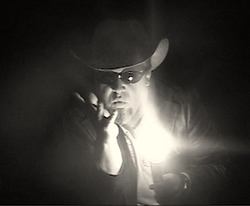 About the author: Glen Armstrong holds an MFA in English from the University of Massachusetts, Amherst and teaches writing at Oakland University in Rochester, Michigan. He edits a poetry journal called Cruel Garters and has three recent chapbooks: Set List (Bitchin Kitsch,) In Stone and The Most Awkward Silence of All (both Cruel Garters Press.) His work has appeared in Poetry Northwest, Conduit and Cloudbank. 3/22/2016 Three poems by Christopher HivnerAnd it Burned He existed outside the store; reluctant, manic; fierce eyes purging the air of molecules. Step, step, step, turn; step, step, step, turn; he marched in concomitance with his heart beat. He waited with desperation, just to see a face. If he could look into the eyes to see what he received back. Outside the store cars came and went, bodies walked in and out, men laughed, women swept their hair, the air burned. He waited. He waited. He waited, existing in a thread of time loose from any garment and it burned. I Wrote This One While it Rained Soothing patter lets me to devices that exist only in the morning quiet, thoughts snake to the surface from crevasses inside that never completely healed. My choice: push them away with force or allow them a space to live if only temporarily, but that’s a danger I’ve shaken hands with before. It is sly, insidious, yet on this morning with plans ruined, the gray sky acts as carnival barker inviting me to step right up and take a gawk at the monster buried in the pit. So I sneak a peek, heart beating with the thunder. The rain pelts the creature but it doesn’t stir, sleeping soundly, the snores rumble and I shake my head. Encouraged by the gloom to prod it with a sharp stick, instead I let sleeping pain lie. With age comes wisdom or maybe you just get lucky once in a while. My Darling, Perchance Disguises aren’t for everyone. I liked to stay invisible in front of the day but she wanted the fire so we’d walk, down the blocks, through the nationals, me with my shoulders forward and her a step ahead, hair blowing in the wind even when their wasn’t any. Old men liked to wet their fingers when she passed by, receiving a full set of teeth in return, young losers thrust their pelvis from across the street yelling with their hands, spelling out filthy entreaties with rolled tongues. She’d stiffen her neck and pretend she was above their distaste but she tucked it all away in a pocket of her flesh to be used later. Disguises aren’t for everyone, not for those that are even, but she went out in layers to collect everyone’s love so when we got home she could be part of us and hold that energy in reserve in case that wasn’t enough.  About the author: Christopher Hivner writes from a small town in Pennsylvania surrounded by books and the echoes of music. He has recently been published in Saudade and Dead Snakes. A chapbook of poems, “The Silence Brushes My Cheek Like Glass” was published by Scars Publications and another, “Adrift on a Cosmic Sea”, was published by Kind of a Hurricane Press. website:www.chrishivner.com, Facebook: Christopher Hivner - Author, Twitter: @Your_screams |
AuthorWrite something about yourself. No need to be fancy, just an overview. Archives
April 2024
Categories |
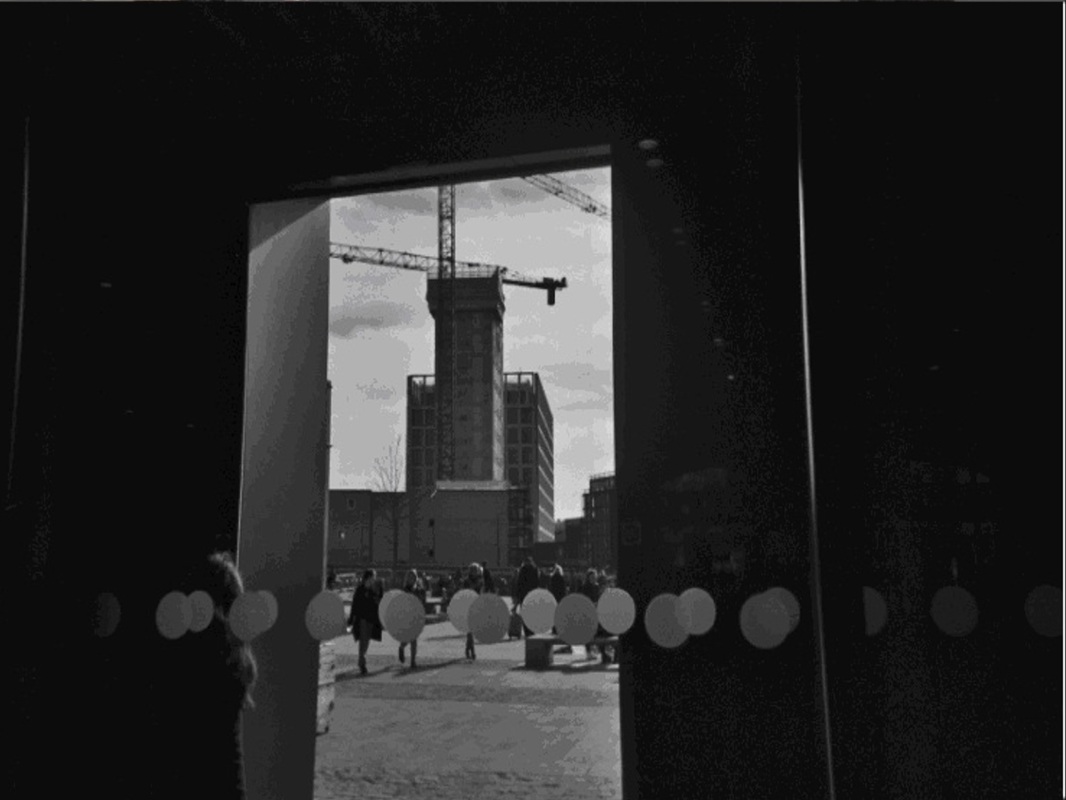
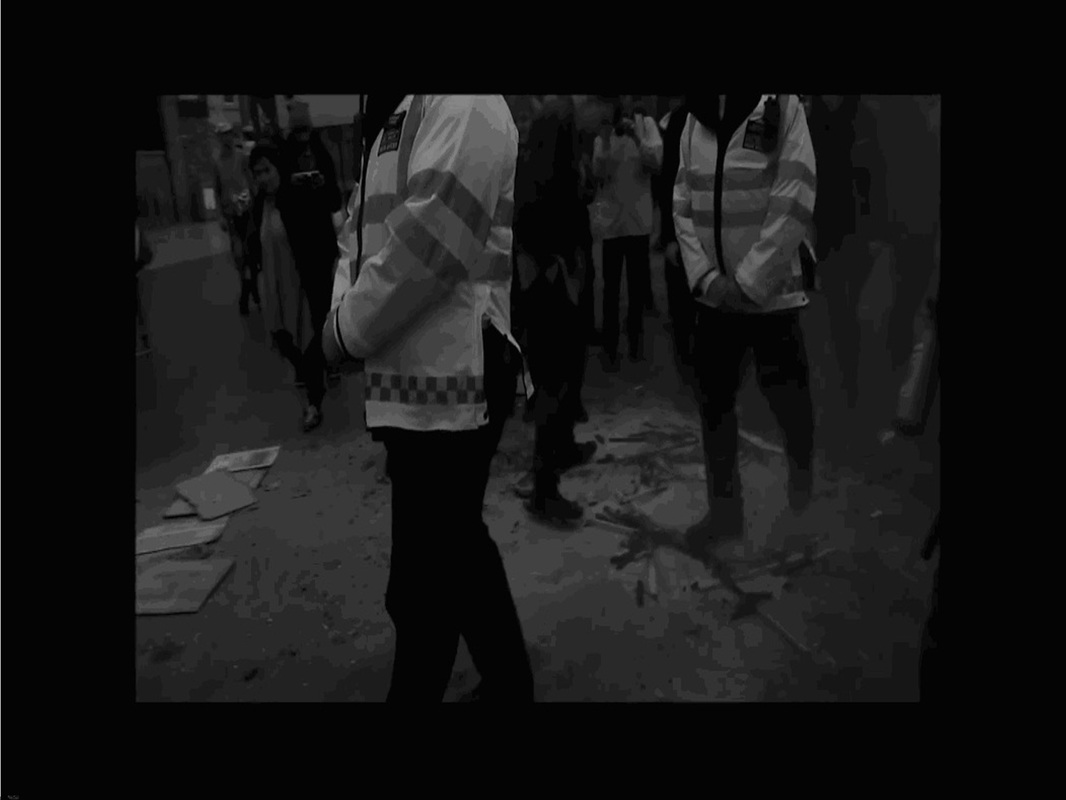
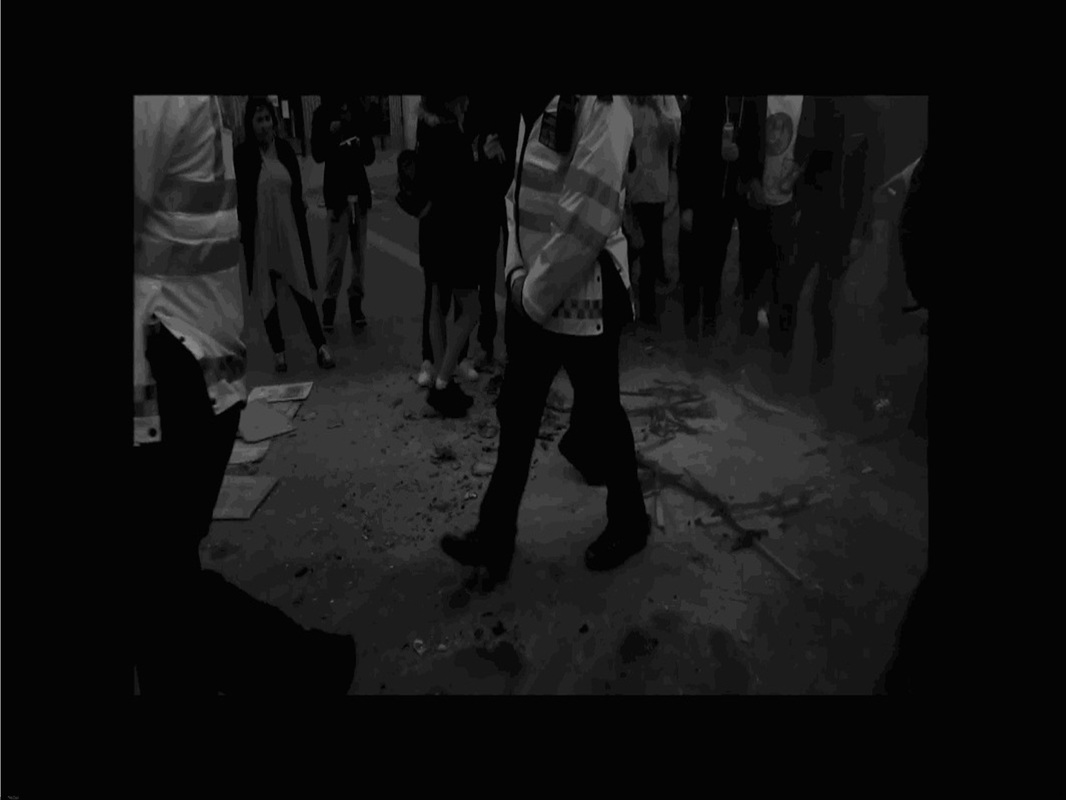
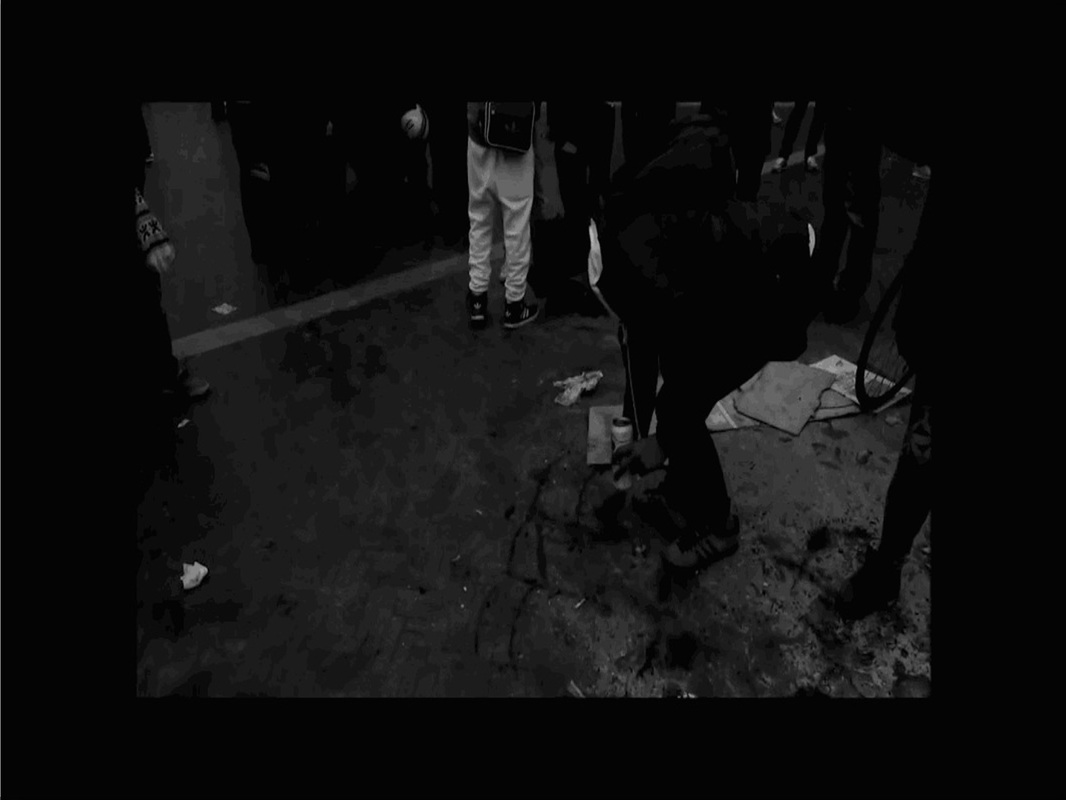
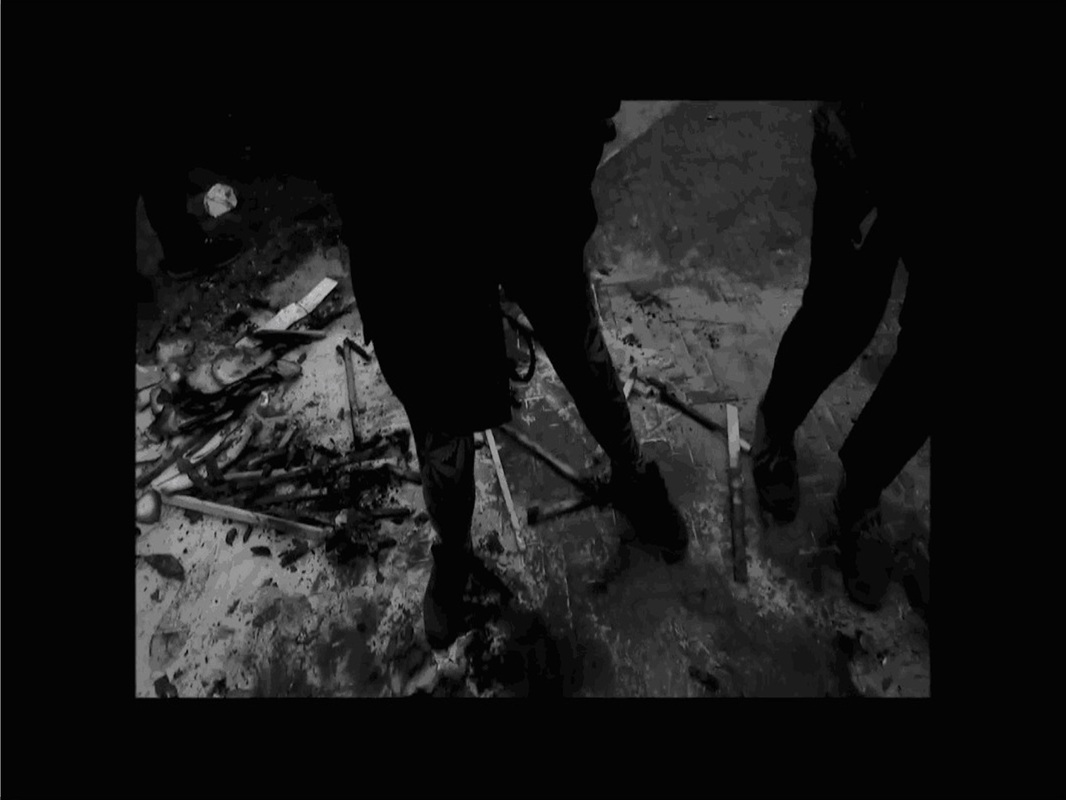
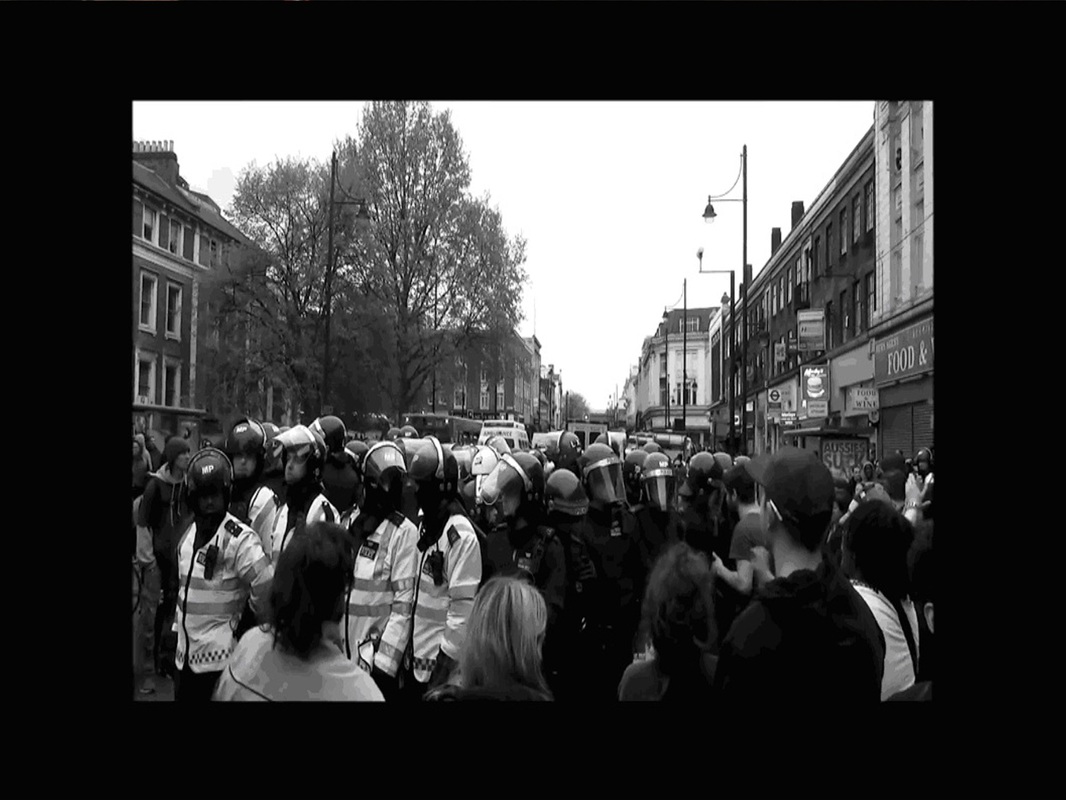
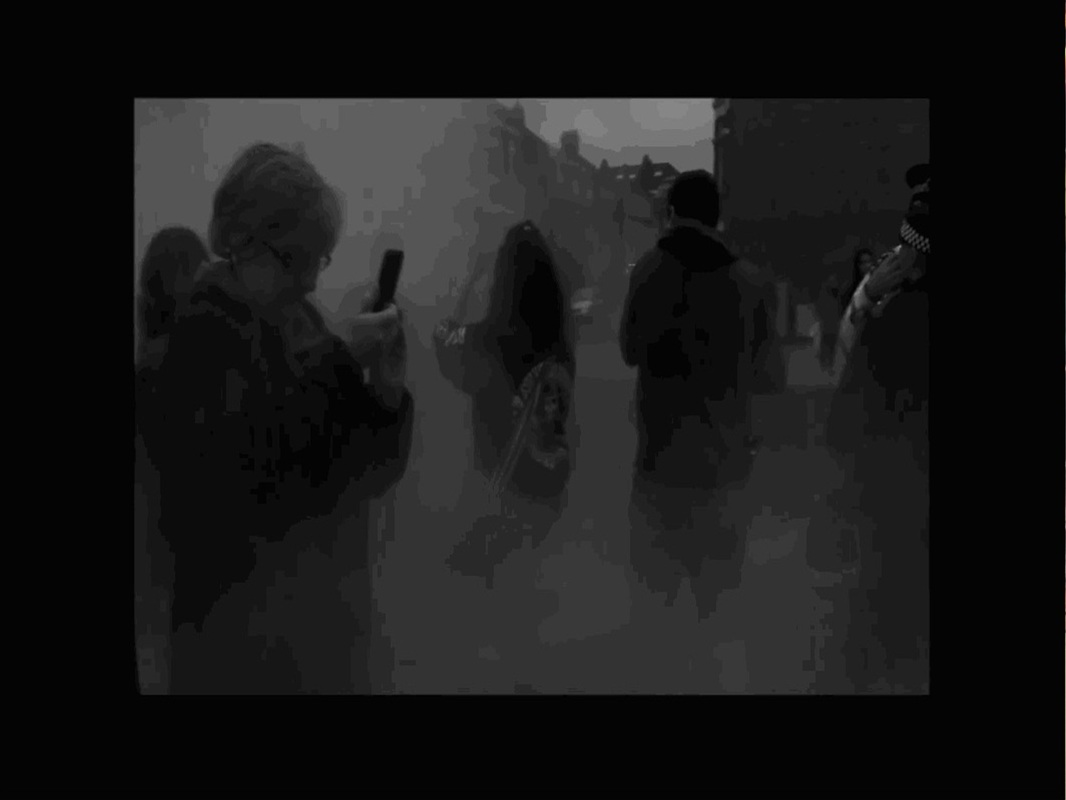
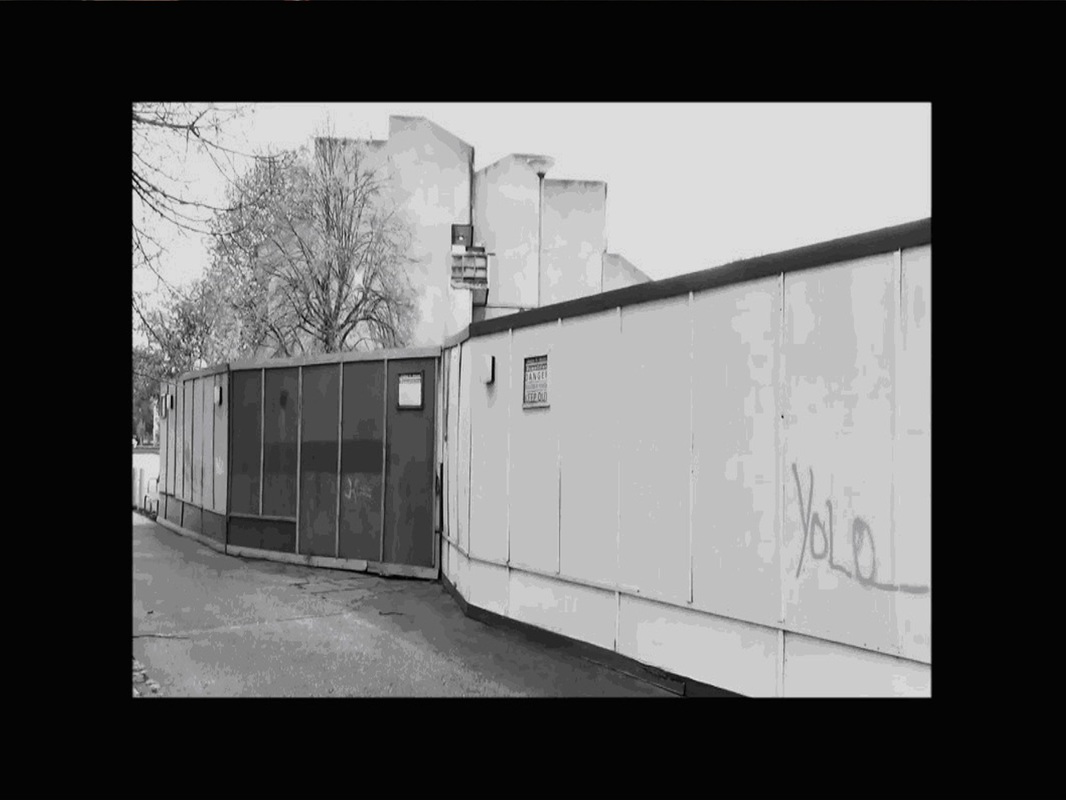
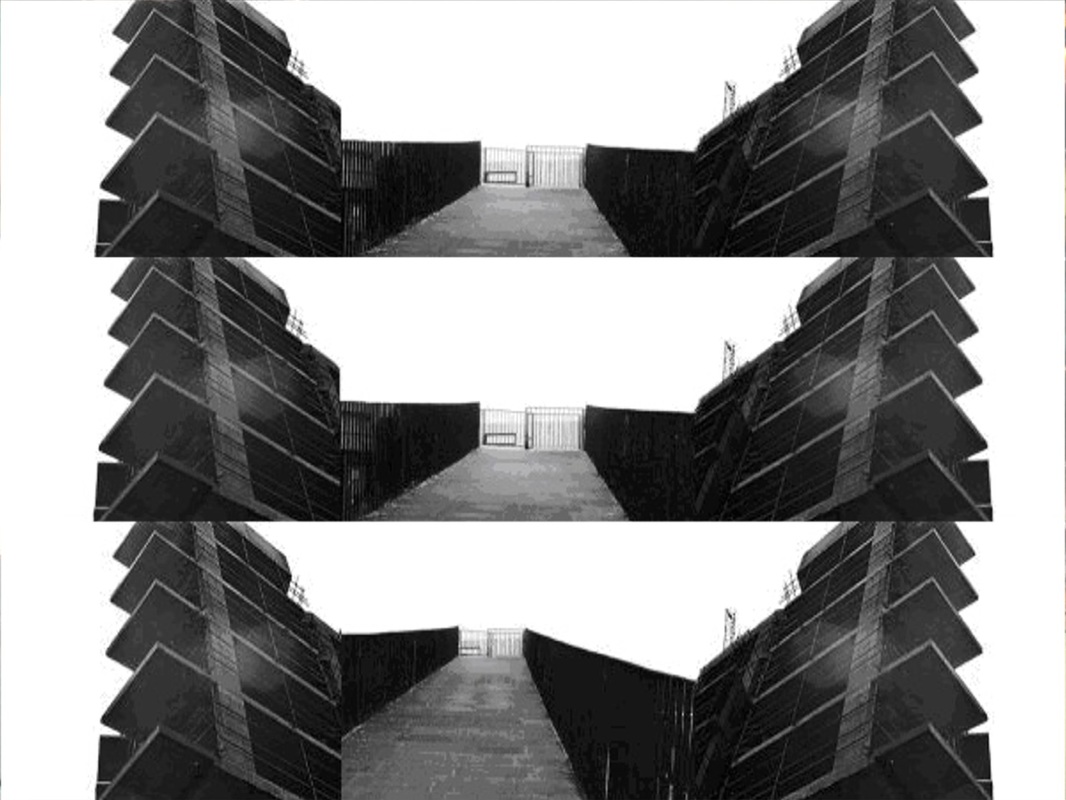
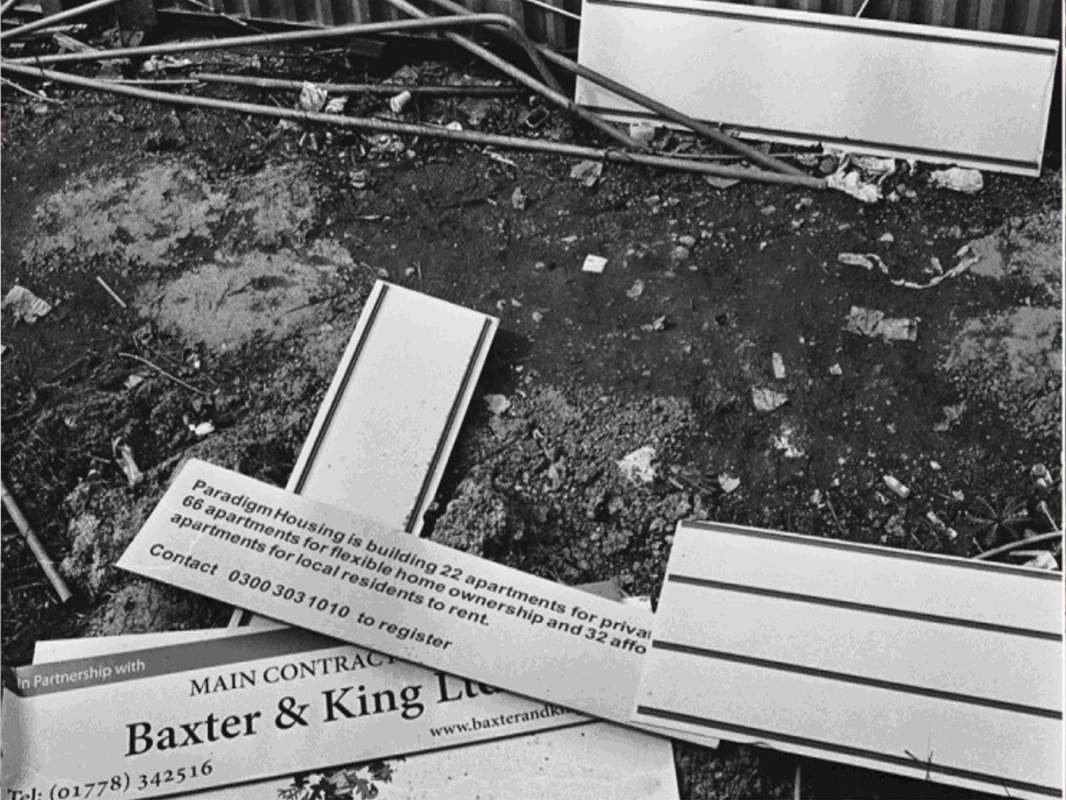
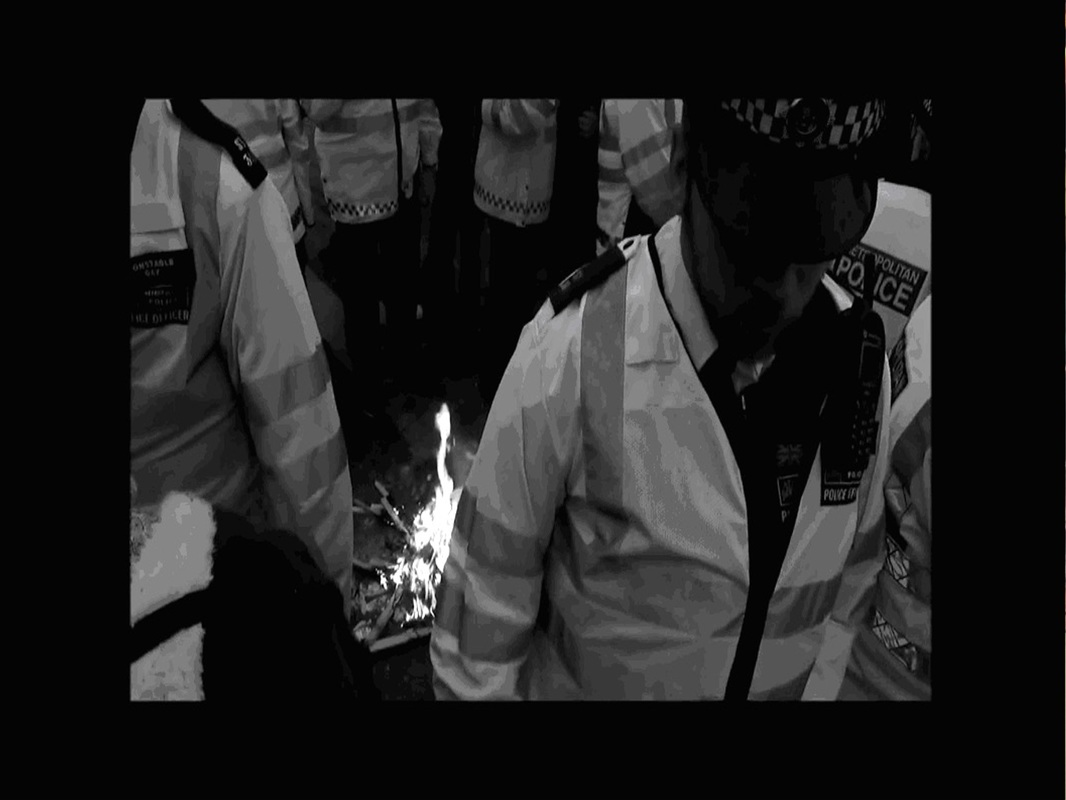
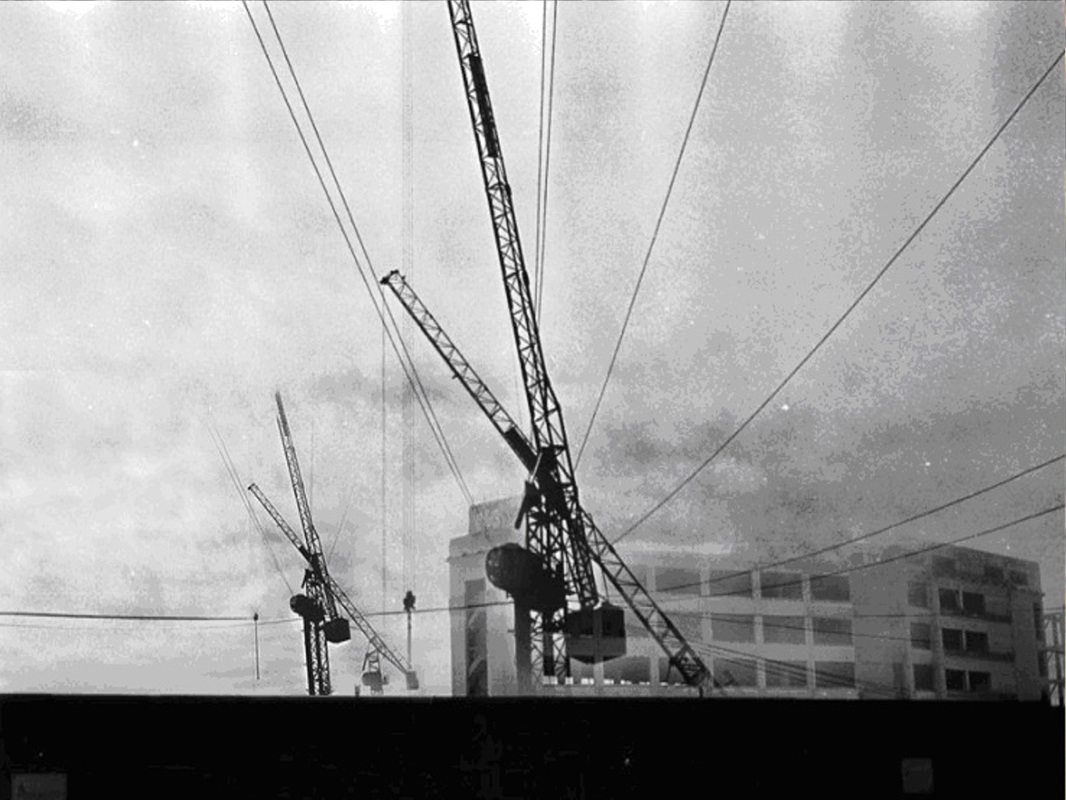
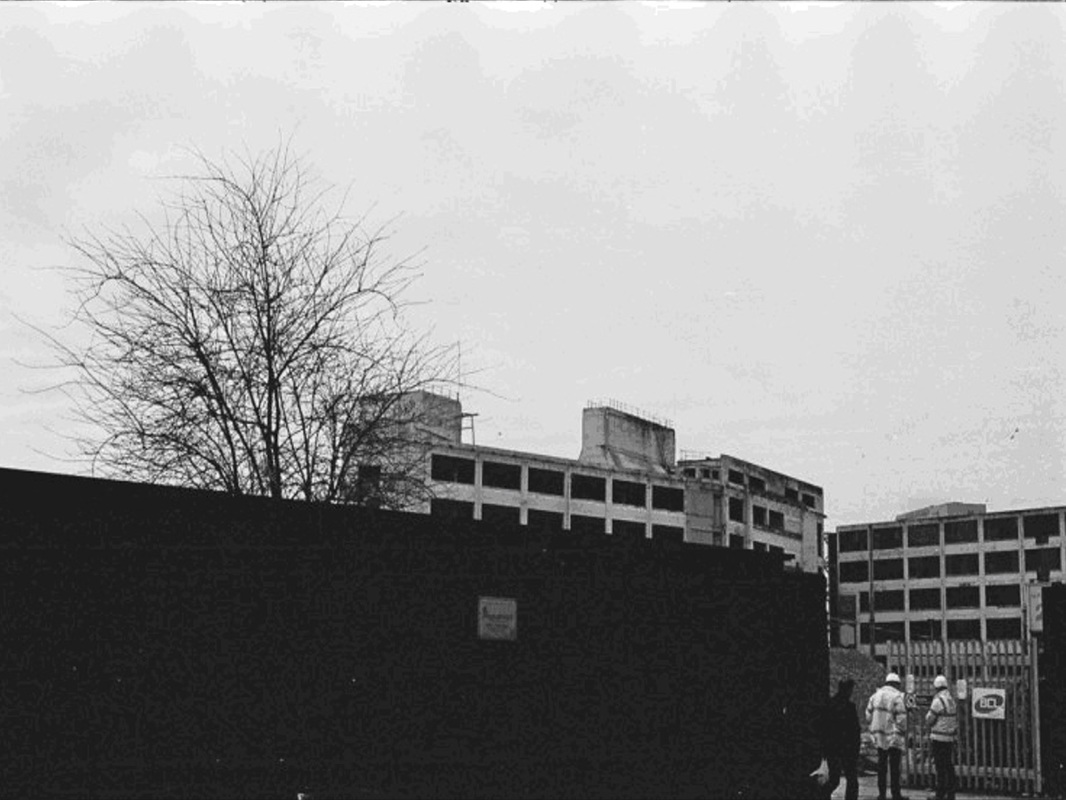
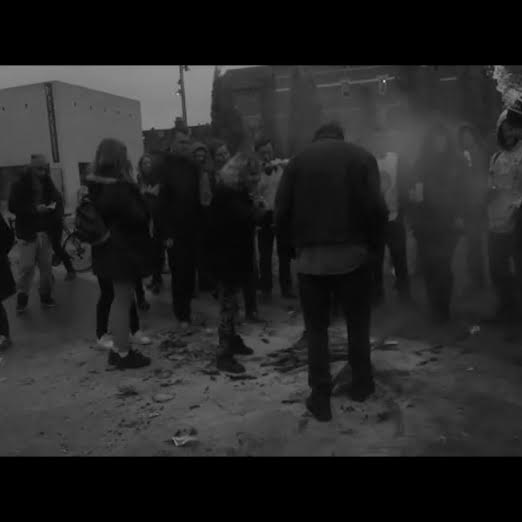
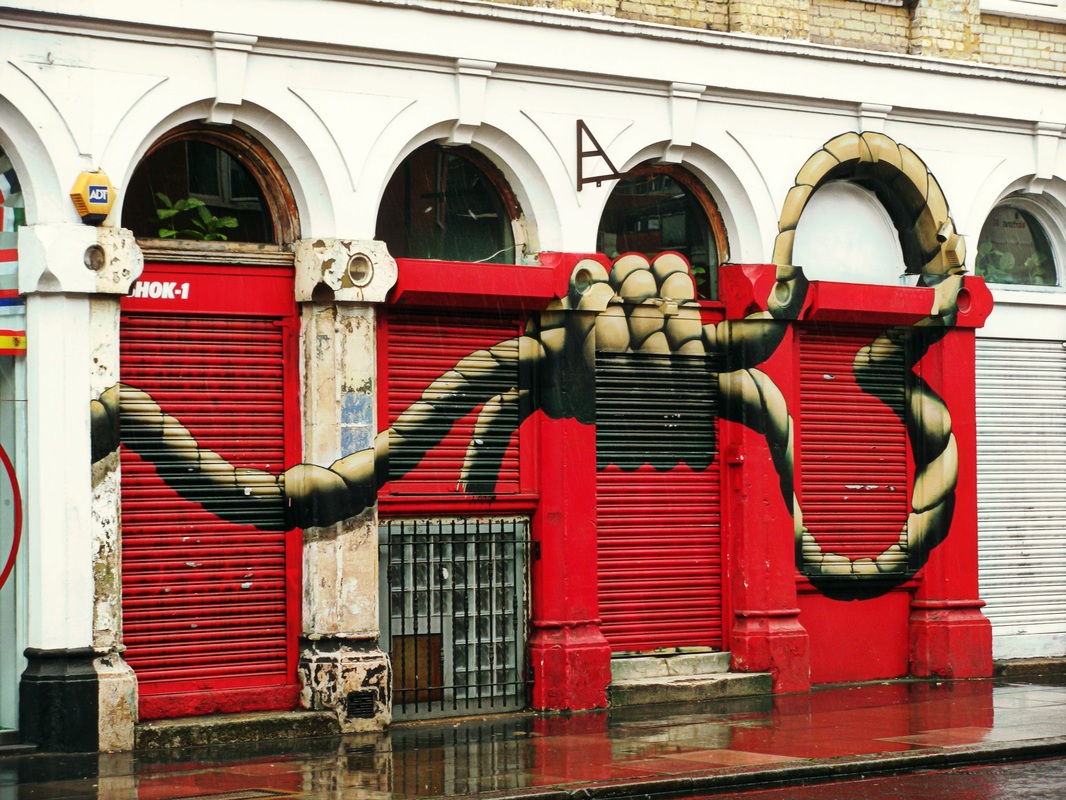



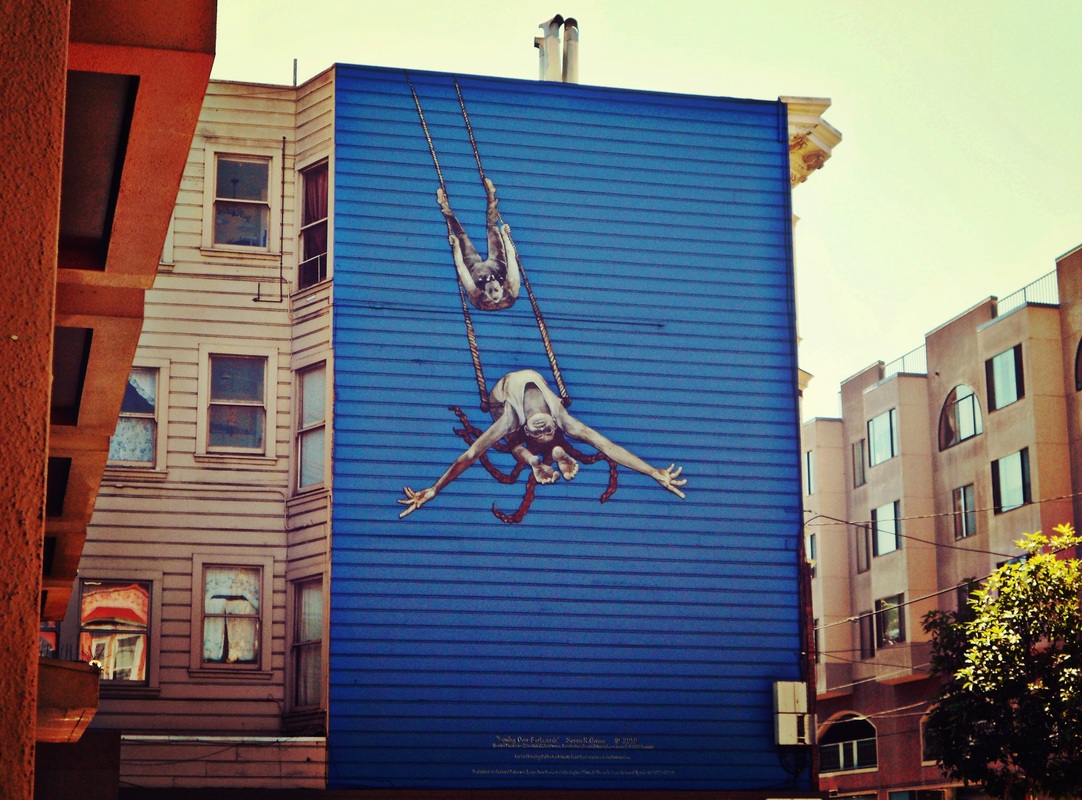

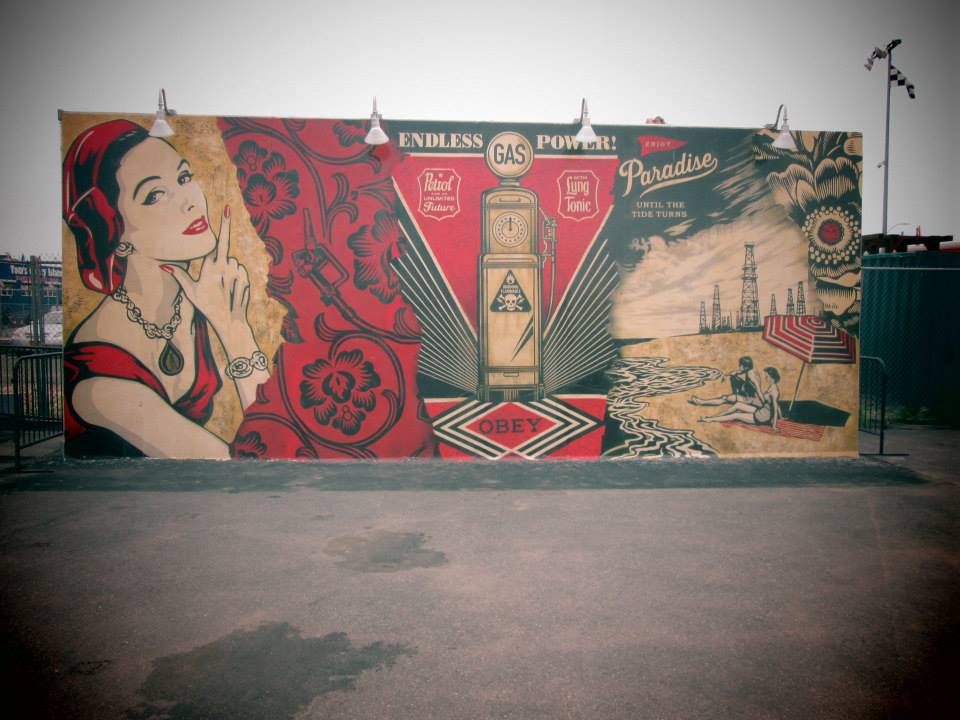
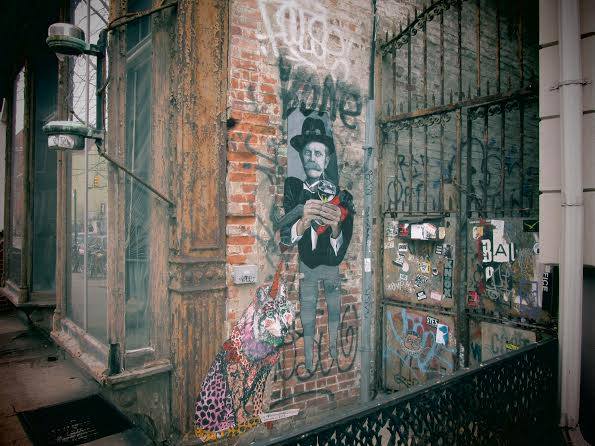
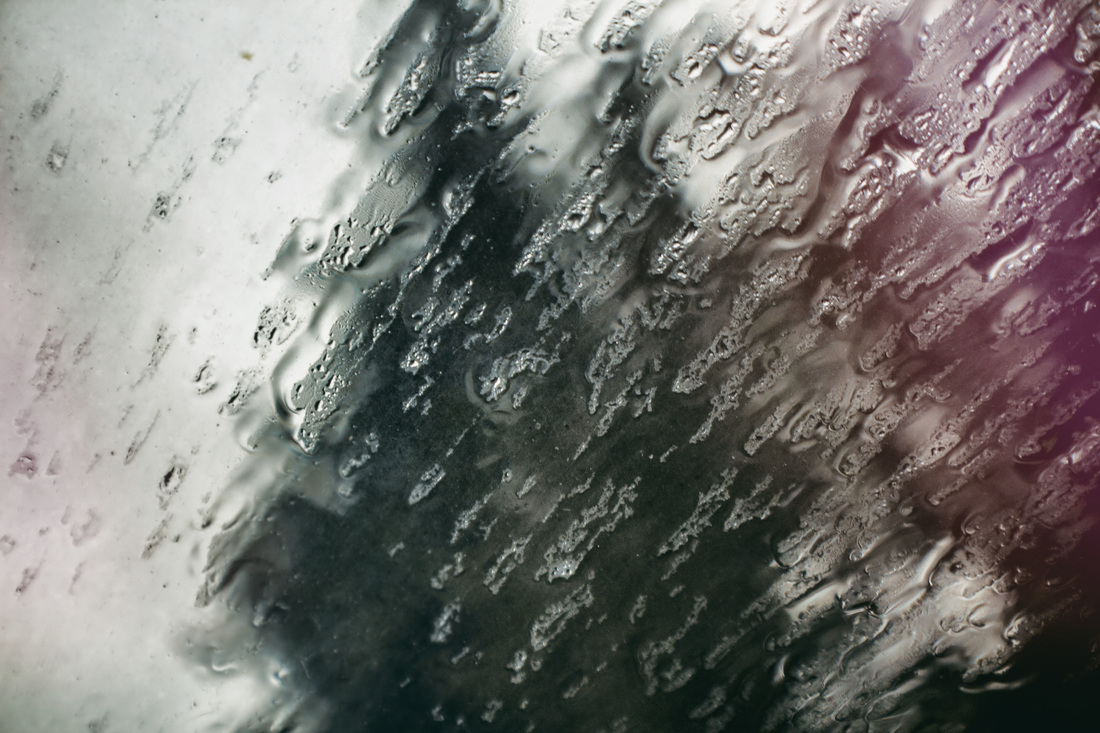





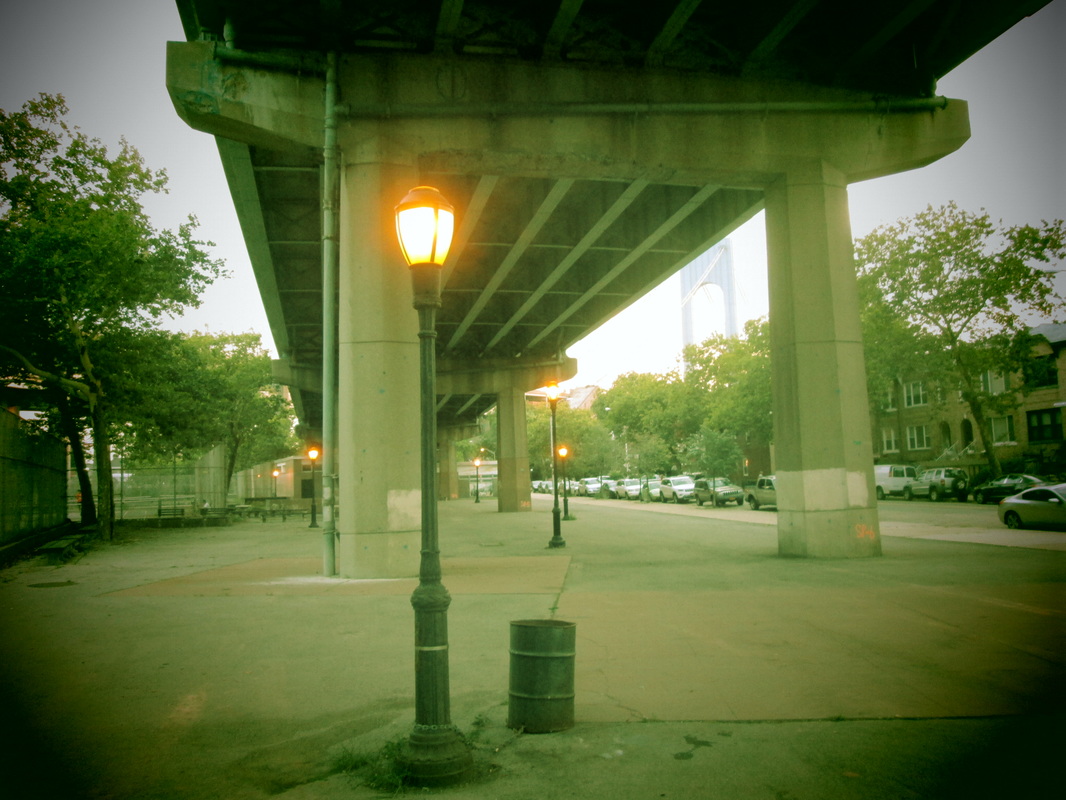
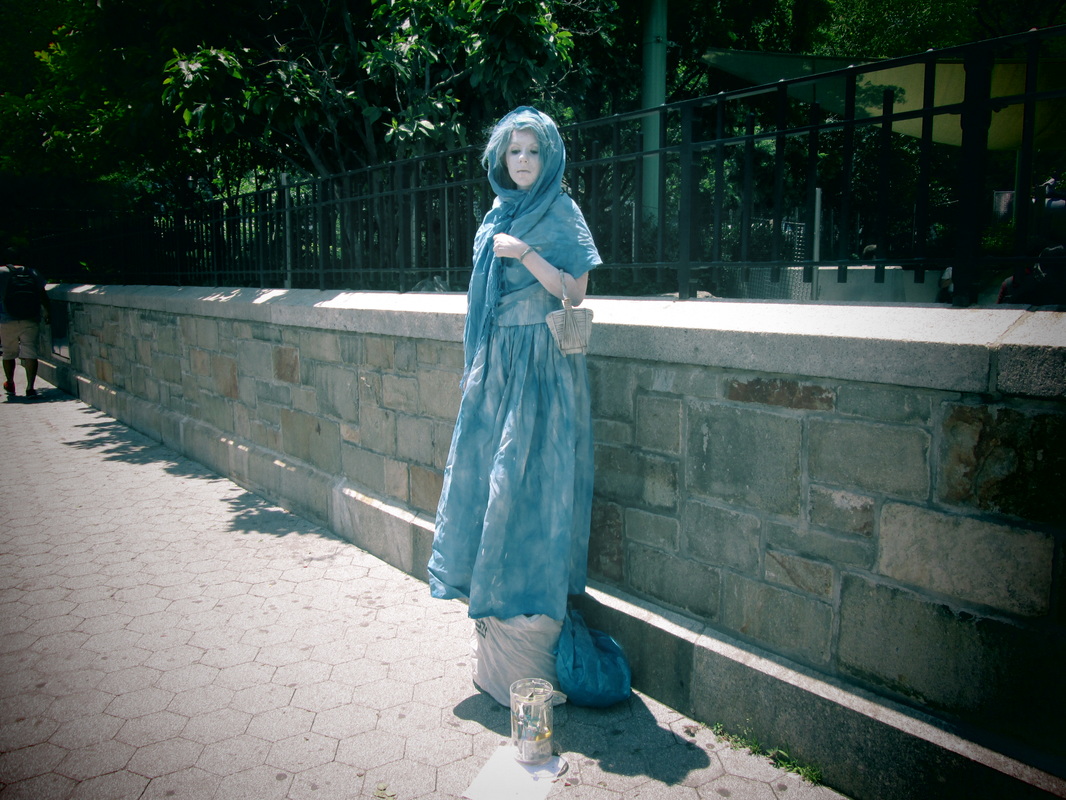
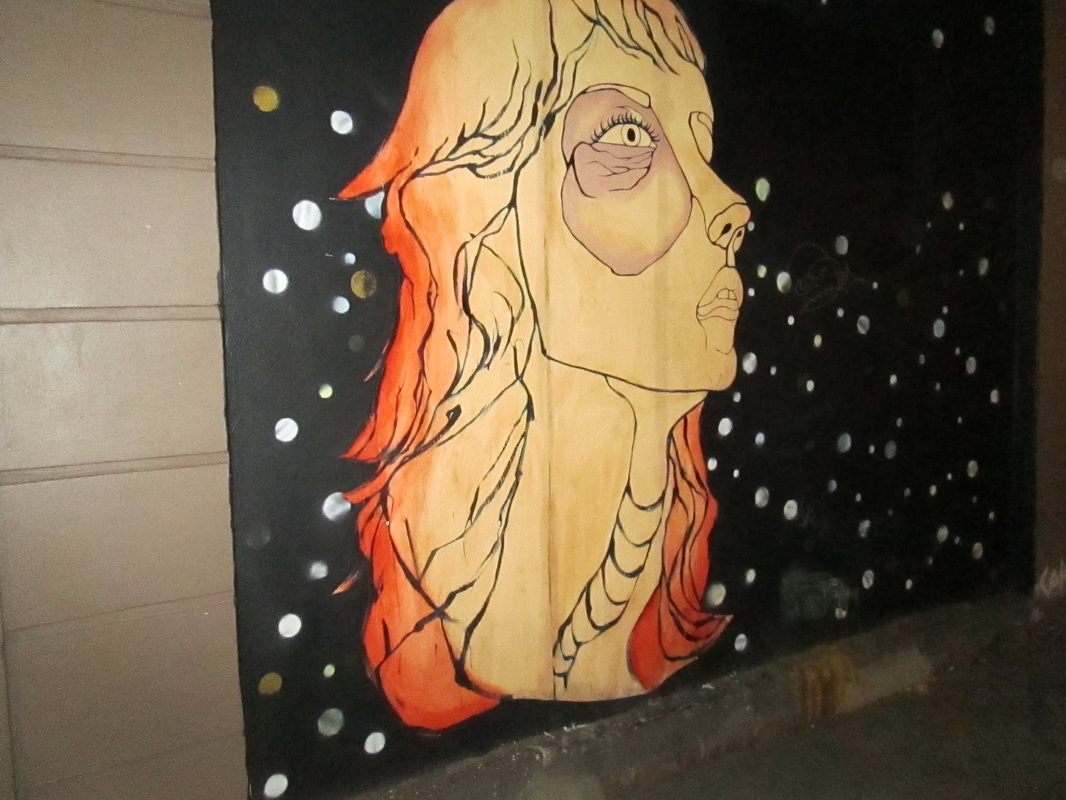
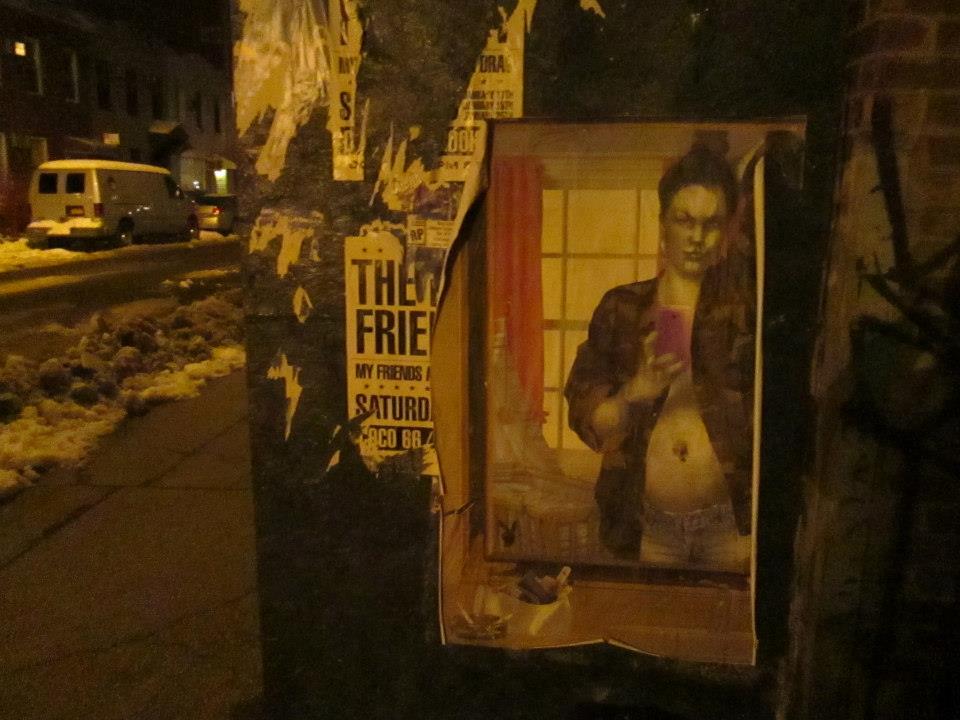
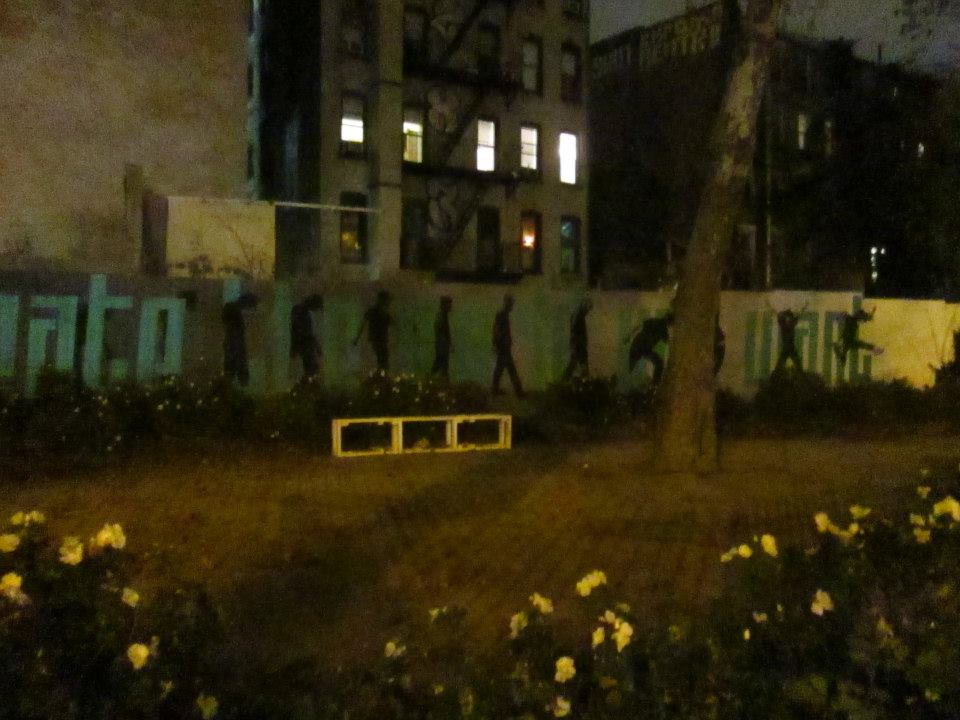
 RSS Feed
RSS Feed
